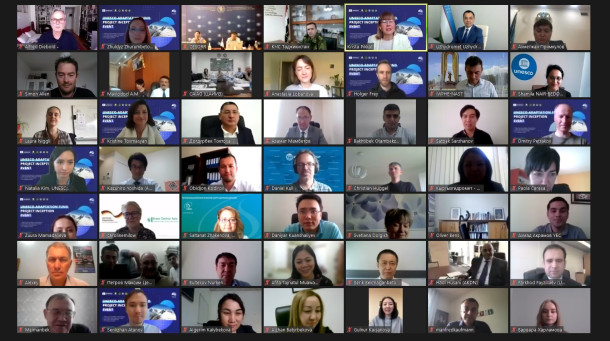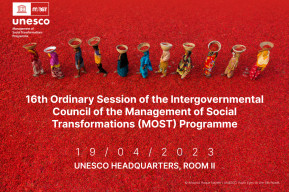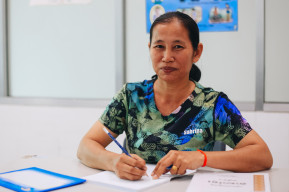Project
UNESCO Regional Project on climate change

"Reducing vulnerabilities of populations in the Central Asia region from glacier lake outburst floods in a changing climate" (GLOFCA) is the first UNESCO project, funded by the Adaptation fund globally, and the first regional project of such scale in Central Asia, addressing GLOFs within the full context of climate change adaptation, extending from baseline knowledge and capacity building, monitoring and anticipation, through to development and implementation of adaptation strategies. The project duration is five years – from 2021 to 2026
Central Asia is facing serious challenges in coping with the adverse effects of climate change. One of its most significant effects in the region is the intensive melting of glaciers and the associated formation of glacial lakes, which pose a threat to mountain communities, their settlements, livelihood, and infrastructure located on river floodplain areas.

The project includes both a research component involving risk assessment and mapping, the design and implementation of early warning systems, as well as extensive training and awareness-raising activities focusing on local communities at risk. The project will also strengthen the monitoring, analytical and response capacities of institutions and government officials responsible for disaster risk reduction, emergencies and climate change adaptation.
As the only UN agency responsible for the promotion of international cooperation in science, UNESCO aims at developing a deeper scientific comprehension of the occurrence and distribution of natural hazards in time and space. By operating at the interface between natural and social sciences, education, culture, and communication, UNESCO plays a vital role in constructing a global culture of resilient communities.
As a follow-up of the regional launch, national technical workshops will be organized further to discuss the details of the project work plan in each participating country.









